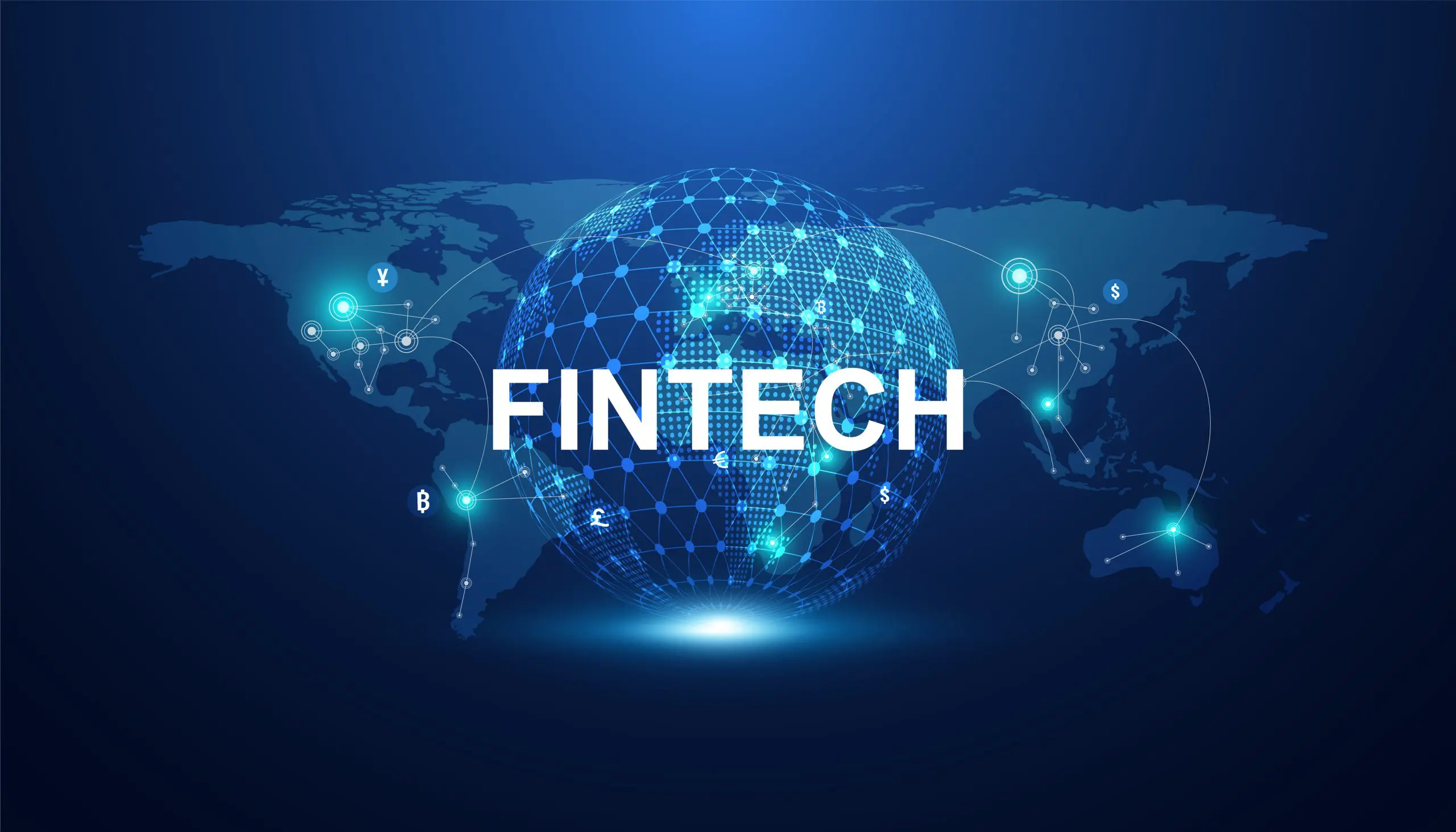
In the horizon where finance and technology meet, the synergy between these two domains has given rise to the phenomenon known as Financial Technology or Fintech. Fintech has not only disrupted traditional financial practices but has also opened up a world of possibilities for businesses and individuals alike.
At the heart of this revolution lies the concept of financial software development, driving innovation and reshaping the way we manage, invest, and interact with money. In this comprehensive guide, we will dive into the latest trends in fintech software development and understand its crucial role in shaping our financial future.
Table of Contents
What is Fintech?

Source: geeksforgeeks.org
Fintech, short for Financial Technology, refers to the use of technology to provide innovative and enhanced financial services. It encompasses a wide range of digital solutions and applications that aim to streamline, automate, and improve various aspects of financial processes, transactions, and services. Fintech leverages cutting-edge technologies such as mobile apps, artificial intelligence (AI), blockchain, big data analytics, and more to transform traditional financial services and create new opportunities in the financial industry.
Fintech solutions can span across various areas within finance, including but not limited to:
- Payments and Money Transfers: Fintech has revolutionized the way we make payments and transfer money. It includes mobile wallets, peer-to-peer payment apps, contactless payments, and even cross-border remittances.
- Lending and Borrowing: Online lending platforms and peer-to-peer lending models have emerged as alternatives to traditional banks for accessing loans and credit.
- Investments and Wealth Management: Fintech has democratized investment by offering automated investment platforms (robo-advisors), making it easier for individuals to manage their investments with minimal human intervention.
- Personal Finance Management: Apps and tools that help users manage their budgets, track expenses, and set financial goals fall under this category.
- Insurance Technology (Insurtech): Fintech solutions in the insurance sector include digital insurance platforms, claims processing automation, and personalized insurance offerings.
- Digital Banking: Online banking, mobile banking apps, and virtual banks are part of the fintech landscape, offering customers more convenient ways to manage their finances.
- Cryptocurrencies and Blockchain: The emergence of cryptocurrencies like Bitcoin and blockchain technology has introduced decentralized and secure ways of conducting transactions, enabling peer-to-peer transfers and eliminating intermediaries.
- RegTech and Compliance: Regulatory technology (RegTech) uses technology to help financial institutions comply with regulations efficiently and effectively, reducing risks and costs associated with compliance.
- Crowdfunding and Fundraising: Fintech platforms have facilitated crowdfunding campaigns for various projects, startups, and charitable causes.
The Fintech Revolution Unveiled
Imagine a world where financial transactions are conducted seamlessly, investments are automated, and banking is as convenient as ordering food online. This vision is becoming a reality thanks to the rapid advancements in fintech software development. From peer-to-peer lending platforms to mobile payment apps, fintech has touched every corner of our financial lives.
Fintech Software Development is the process involves creating applications, platforms, and solutions that leverage technology to offer innovative financial services. These services encompass everything from mobile banking and investment platforms to cryptocurrency exchanges and robo-advisors.
Key Drivers of the Fintech Revolution

Source: forbes.com
Digital Transformation
As more aspects of our lives move into the digital realm, it was only a matter of time before finance followed suit. Fintech leverages digital platforms, mobile apps, and online interfaces to offer seamless financial experiences.
Changing Consumer Expectations
Modern consumers demand convenience, speed, and accessibility. Fintech meets these expectations by providing 24/7 access to financial services and enabling transactions at the click of a button.
Access to Unbanked and Underbanked
Fintech has bridged the gap between financial institutions and individuals who were previously excluded from the traditional banking system. Mobile banking and digital wallets have given millions access to banking services.
Data-Driven Insights
Big Data and analytics play a pivotal role in fintech. The ability to analyze vast amounts of data allows for personalized financial recommendations, accurate risk assessments, and improved fraud detection.
Blockchain and Cryptocurrencies

Source: caixabankresearch.com
The decentralized nature of blockchain technology and the emergence of cryptocurrencies have challenged traditional methods of payment and investment, paving the way for innovative alternatives.
Key Players in the Fintech Landscape
Payment Platforms
Companies like PayPal, Square, and Stripe have revolutionized online payments and merchant services, making online transactions smoother and more secure.
Robo-Advisors
Robo-advisors like Betterment and Wealthfront offer automated investment services, enabling users to create diversified portfolios based on their risk tolerance and financial goals.
Peer-to-Peer Lending
Platforms like LendingClub and Prosper facilitate peer-to-peer lending, connecting borrowers with individual lenders, circumventing the traditional banking system.
Digital Banks
Digital banks such as Chime and Revolut operate exclusively online, providing mobile-centric banking experiences without the need for physical branches.
Cryptocurrency Exchanges

Source: forbes.com
Exchanges like Coinbase and Binance have popularized the buying, selling, and trading of cryptocurrencies, making them more accessible to the general public.
The Promising Prospects
The Fintech Revolution shows no signs of slowing down. As technology continues to advance, we can expect:
- Innovation in Payment Methods: From biometric authentication to invisible payments, the way we pay for goods and services will continue to evolve.
- Enhanced Customer Experience: AI-powered chatbots, personalized financial advice, and predictive analytics will create tailored experiences for users.
- Financial Inclusion: Fintech will further extend its reach to underserved populations, providing them with essential financial tools.
- Blockchain Evolution: Blockchain technology will impact sectors beyond finance, creating transparent supply chains and secure identity verification systems.
Key Trends Shaping Fintech Software Development
1. Digital Payments and Cryptocurrencies
Digital payments have gone beyond just convenience; they are now a way of life. Mobile wallets, contactless payments, and QR code-based transactions have become ubiquitous. Moreover, the rise of cryptocurrencies, led by Bitcoin and Ethereum, has opened up new avenues for investment and decentralized financial systems. This trend underscores the need for secure and user-friendly financial software development.
2. Blockchain Technology
Blockchain, the technology behind cryptocurrencies, has found applications beyond digital currencies. Its decentralized and immutable nature makes it ideal for secure and transparent transactions. Industries like supply chain management, identity verification, and cross-border payments are exploring blockchain-based solutions, necessitating sophisticated fintech software development to harness its potential.
3. AI and Big Data in Financial Services

Source: kandasoft.com
Artificial Intelligence (AI) and Big Data are transforming how financial institutions analyze data, manage risks, and personalize services. Chatbots provide instant customer support, algorithms predict market trends, and credit scoring models are becoming more accurate. The fusion of AI, Big Data, and financial software development has paved the way for smarter and data-driven decision-making.
4. RegTech for Compliance and Security
With the digital expansion of financial services, the need for robust security and compliance measures has grown. Regulatory Technology (RegTech) solutions powered by fintech software development help businesses adhere to complex regulations, monitor transactions for fraud, and enhance cybersecurity protocols.
5. Open Banking Ecosystems
Open Banking is redefining how financial data is shared and utilized. Through Application Programming Interfaces (APIs), different financial institutions can securely exchange information, enabling customers to access a comprehensive range of financial services through a single app or platform. Fintech software development is the backbone of this interconnected financial ecosystem.
Factors Influencing the Cost of Financial Software Development
Creating cutting-edge fintech solutions involves various factors that contribute to the overall cost. Here’s a breakdown of what influences the financial software development cost:
| Factor | Description |
| Complexity of Features | The more intricate the features, such as AI integration or blockchain, the higher the development complexity. |
| Development Time | The duration required to design, code, test, and deploy the solution impacts the cost. |
| Technology Stack | The choice of programming languages, frameworks, and tools can affect development time and expenses. |
| Security Measures | Implementing robust security protocols and encryption mechanisms adds to the development cost. |
| Design and UX | User interface (UI) and user experience (UX) design efforts play a role in the final cost. |
| Integration Needs | If the solution needs to integrate with other systems or APIs, it may increase the complexity and cost. |
| Regulatory Compliance | Developing solutions that adhere to financial regulations may require additional resources and time. |
Conclusion
The world of fintech is a constantly shifting landscape, powered by innovative financial software development. As digital payments, cryptocurrencies, AI, and open banking redefine how we manage our finances, staying updated with the latest trends is crucial for businesses and individuals alike. Amidst this whirlwind of financial technology, partnering with a reliable custom software development company in USA like A3logics can be a game-changer. Their expertise in fintech software development and custom software development services ensures that you stay ahead in the race, leveraging the latest trends to build innovative and secure financial solutions. They offer tailored solutions that align with your unique business requirements. Our team of experienced developers, designers, and fintech experts collaborate to create applications that meet your goals and exceed your expectations.
FAQs
Q1: What is fintech software development?
Fintech software development involves creating digital solutions for financial services, ranging from mobile banking apps to cryptocurrency platforms, using advanced technologies.
Q2: How are AI and Big Data changing fintech?
AI and Big Data enhance fintech by providing data-driven insights, improving customer experiences, and automating processes like risk assessment and fraud detection.
Q3: What is RegTech?
RegTech stands for Regulatory Technology, involving the use of technology to help businesses comply with financial regulations efficiently.
Q4: Why is blockchain important in fintech?
Blockchain’s decentralized and secure nature makes it ideal for transparent and secure transactions, benefiting areas like payments, identity verification, and more.
Q5: How can A3Logics help with fintech software development?
A3Logics, a leading custom software development company in the USA, offers tailored solutions for fintech, combining expertise with the latest trends to build innovative and secure financial software. Contact us to embark on your fintech journey.







